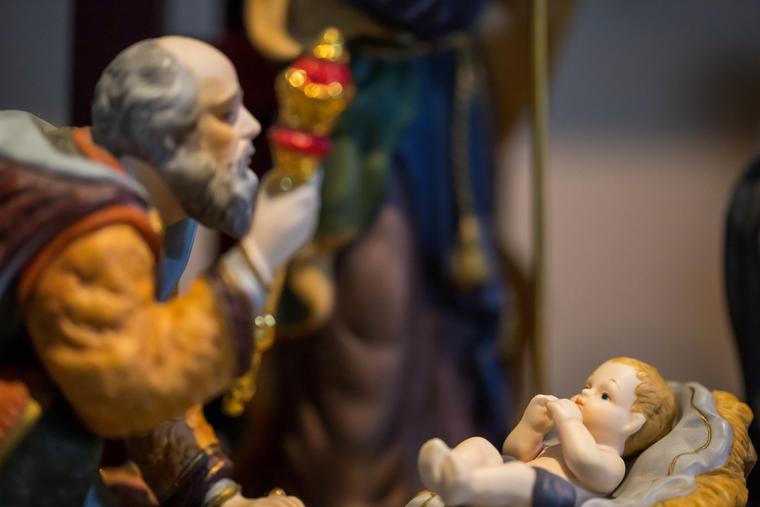How the Magi Became Wise Men
User’s Guide to Epiphany Sunday

Sunday, Jan. 8, is the Epiphany of the Lord. Mass readings: Isaiah 60:1-6; Psalm 72:1-2, 7-8, 10-11, 12-13; Ephesians 3:2-3a, 5-6; Matthew 2:1-12.
In this Gospel we follow the Magi in their journey of faith. As magi, they followed the faint stars, distant points of light; as wise men, they follow Jesus, who is Light from Light, true God from true God. Let’s look at the stages of their journey from being mere magi to becoming, by God’s grace, wise men.
Call That Completes
“Magi from the east arrived in Jerusalem …” These are learned men; perhaps they are ancient astronomers. Yet here is their key identity: They are Gentiles who have been called. Up until this point in the Christmas story, only Jews had found their way to Bethlehem. In today’s second reading, St. Paul rejoices in this fact, saying, “the Gentiles are coheirs [with the Jews].”
Constancy That Conquers
Upon arriving in Jerusalem, the Magi find a rather confusing and perhaps discouraging situation. The reigning king, Herod, knows nothing of the birth of this new King. The Magi likely assumed that the newborn King would be related to the current king, so Herod’s surprise may have confused them. And Herod seems more than surprised; he seems threatened and agitated. Even more puzzling, Herod calls in religious leaders to get further information about this new King. But these religious leaders seem unenthusiastic about the newborn King and, after providing the location of his birth, seem to make no effort to follow the Magi. So the wicked (i.e., Herod and his court) are wakeful while the saints are sleepy. How odd this must have seemed to the Magi! Perhaps they even thought about abandoning their search. But praise the Lord, they persevered in their search; they did not give up!
Coming Before Christ
“[O]n entering the house they saw the child with Mary his mother. They prostrated themselves and did him homage.”
With what little information they have, the Magi set out and continue to follow the star.
Notice, too, that they “prostrate” themselves before Jesus. The Greek word used is prosekunesan, which means “to fall down in worship” or “to give adoration.”
Cost That Comes
They give three symbolic gifts that show some of what true faith includes. They are costly gifts. Gold symbolizes all of our possessions. Frankincense symbolizes the gift of worship. Myrrh is a burial ointment. Surely this prefigures Jesus’ death, but it also symbolizes our own. In laying this gift before Jesus, we are saying, “My life is yours.” In their holy reverence for God is wisdom in its initial stage!
Conversion That Is Clear
The text says, “And having been warned in a dream not to return to Herod, they departed for their country by another way.”
These Wise Men are walking differently now. They are not going home by the same way they came. They’ve changed direction; they’ve turned around (conversio). They are now willing to walk the straight and narrow path that leads to life.
No longer mere magi, now they are wise men! Through careful stages, the Lord has brought the Gentiles (this means you and me) to conversion. He called these Magi to wisdom. They remained constant, confessed him to be Lord, accepted the cost of discipleship, and manifested conversion.
May we follow the Wise Men.

















